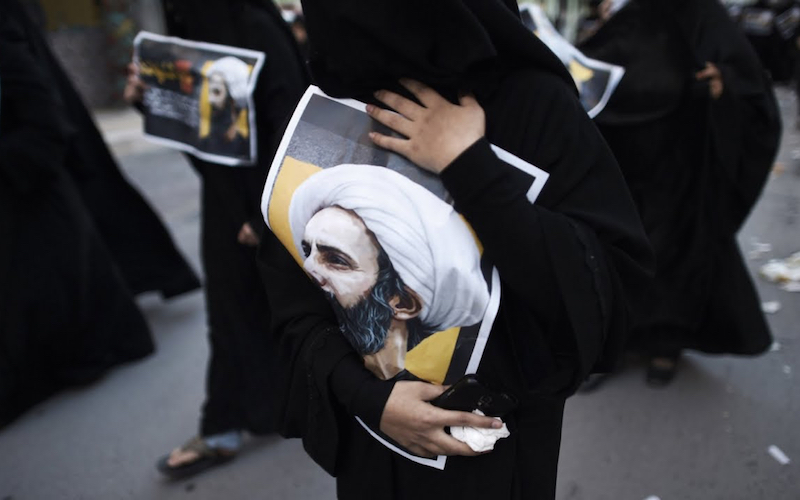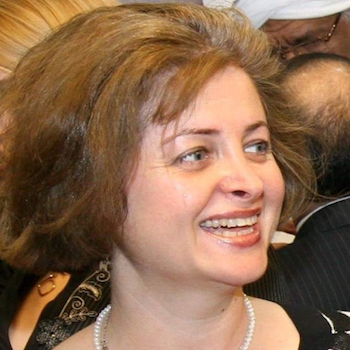
Time for Islamic Cooperation
There were reverberations in the Gulf after the January 21st meeting in Jeddah of the Organization of Islamic Cooperation (OIC) to condemn the attack on the Saudi embassy in Iran. A quick glance at the statements issued by Foreign Ministers and mainstream newspapers reveals the potential for very tense relations among some Arab countries and Iran in the future.
On 21st January, in Jeddah, the Organization of Islamic Cooperation (OIC), the world’s 2nd largest organization after the UN, established in 1969 and including 57 states from 4 continents, held an extraordinary meeting upon the request of Saudi Arabia. OIC needed an official framework in order to condemn the attacks on Saudi Arabia’s embassy in Tehran and the consulate in Mashhad on 2nd January, and to voice their views to the world.
On January 2nd, Saudi Arabia executed 47 people, most of them Sunni who were involved in deadly Al-Qaeda attacks in 2003 and 2004 that killed Saudis and foreigners. Among them, a Shia cleric, Sheikh Nimr al-Nimr, who had criticized the kingdom’s treatment of its Shia minority. Iran condemned the execution and Iranian protesters immediately set fire to the Saudi Embassy in Tehran. Sheikh Nimr was a critic of the Saudi Arabia monarchy and had been the symbolic leader of Shia protesters in several Persian Gulf countries during the Arab Spring uprisings.
The picture is extremely murky. After a period when there appeared to be improved relations with Iran, a black curtain has wiped out all previous attempts of normalization resulting in probable sectarian tensions escalating across the Middle East.
Despite bellicose discourses, and despite their so-called authoritarian regimes, many countries in the Middle East want peace in order to build their futures and advance their societies based on technology and knowledge. Wisdom, pride and their own understanding of the security concept will play a role in finding a solution to strained relations with Iran.
During the days following the January 2nd attack on the Saudi embassy in Iran, the UAE, Kuwait, Bahrain, the Sunni-led countries, but also Sudan, in solidarity with KSA, cut their diplomatic ties with Iran. Qatar and Oman have been silent, each having its own specific reason in relation to Iran.
OIC urged its member states and the international community to take actions to prevent occurrences of aggression on diplomatic and consular missions in Iran claiming that “The aggressions against the missions of the Kingdom of Saudi Arabia in Tehran and Mashhad…constitute a flagrant violation of the Vienna Convention on Diplomatic Relations of 1961, the Vienna Convention on Consular Relations of 1963, and international law which guarantees the inviolability of diplomatic missions and respects the immunity of and respect for diplomatic missions accredited to any State in a clear and binding manner, also the Charter of the Organization of Islamic Cooperation and the Charter of the United Nations on the preservation of the sovereignty and territorial integrity of Member States and the non-interference in their internal affairs.”
The official communiqué issued by the OIC Council of Foreign Ministers was rejected by the Iranian delegation which stated that Iran “dissociates itself from it,” while the Lebanese delegation said that “Lebanon distances itself from the communiqué,” and Algeria added a remark on paragraph 5 of the communiqué stating that “in compliance with the principle of non-interference in the internal affairs of states, the legitimate and legal measures taken by Saudi Arabia referred to in paragraph 5 fall under the realm of sovereign decisions.”
For those not familiar with the importance of the religious factions across the Arab world, it has always related to Sunni/Shia political rivalry.
The Organization of Islamic Cooperation condemned Iran’s “inflammatory” statements on Saudi Arabia’s execution of terrorist convicts as a “blatant interference” in the internal affairs of the Kingdom of Saudi Arabia and denounced Iran’s interference in the internal affairs of OIC member states such as Bahrain, Yemen, Syria and Somalia. It also denounced the sectarian and denominational agenda which is destructive and affects the member states’ security and stability and international peace and security, and called for reinforcing relations of good neighborliness among the member states for the interest of peoples, consistent with the OIC Charter, UN Charter and international law.
On 23rd January, John Kerry went to Saudi Arabia so re-assure the Saudi leaders that: “We have as solid a relationship, as clear an alliance, and as strong a friendship with the kingdom of Saudi Arabia as we’ve ever had.”
The tension that has arisen among KSA and its allies, on the one hand, and Iran, on the other hand, is a very intricate matter. When analyzing Who is Whose Friend and Supporter, the case becomes a labyrinth.
I remember a discussion with Sheikha Lubna bint Khalid bin Sultan Al Qasimi, the UAE minister of international cooperation who told me: “Many people don’t know our history in the Gulf: in the UAE, many of us come from Yemeni tribes, we are related to Yemen!” I also remember a discussion with Anwar Gargash, state minister in the UAE Foreign Ministry, who said: “We do not want Iran to create a Hezbollah-type strong wing here in Yemen and maintain instability in the region, like it does in Lebanon. We want to live in peace, to invest and achieve prosperity.” So, that is why the UAE is a major pillar of the Arab coalition in Yemen.
Moreover, there are signs that Tehran may regret not having kept the protests under control, as it now faces international condemnation. On 5th January, the New York Times correspondent in Tehran wrote that “hard-liners in the Iranian regime might regret not having done more to keep the protests under control, and that they might have been taken aback by the vehemence of the international response” and there may be a “sign of factionalism inside the Iranian regime.”
Iran may not be so much “the big bad wolf” but it definitely has a problem with communicating and responding childishly. Iran is too often public enemy #1 simply because it does not understand the importance of foreign policy discourse.

